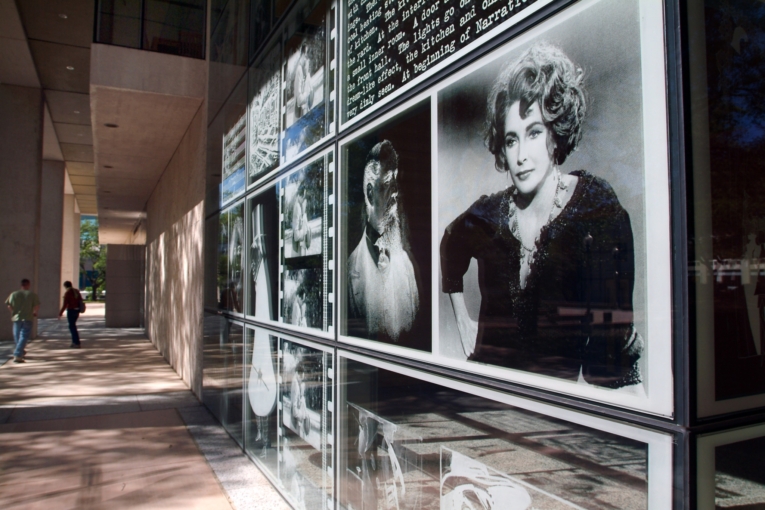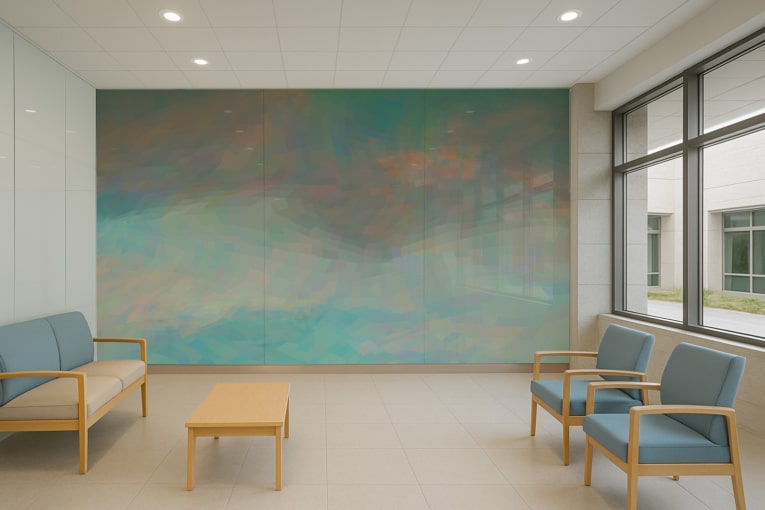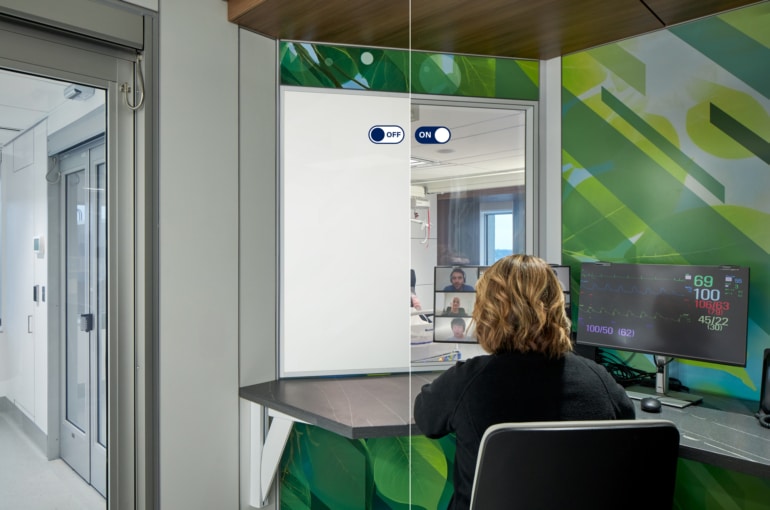In the world of architectural glass, Skyline Design is a prominent name, known for its dedication to quality, sustainability, and innovation. Their reputation as a leading glass supplier, particularly in healthcare spaces, speaks to their commitment to superior craftsmanship.
In a recent Material Moment interview hosted by Farshid Tafazzoli, Co-Founder and Chief Revenue Officer of Material Bank, Vipul Bhagat, the President of Skyline Design, sheds light on the factors contributing to their success and their sustainable practices. Additionally, he highlights the invaluable role played by Material Bank in their operations.
Made in Chicago
One of Skyline Design’s core principles is their dedication to producing all of their architectural glass products right in the heart of Chicago. Vipul Bhagat emphasizes that Skyline Design is 100% Chicago-based, showcasing their commitment to supporting local manufacturing and craftsmanship. To achieve their high standards, they’ve invested in state-of-the-art equipment from around the world, ensuring that their products meet and exceed industry benchmarks.
Leading the Way in Healthcare Glass
Skyline Design’s excellence is not just a matter of location; it’s also evident in their product range. They’ve established themselves as a leading supplier of architectural glass for healthcare spaces. This achievement is a testament to their unwavering commitment to quality and innovation, making them the top choice for healthcare projects that demand the highest standards.
Sustainability at the Core
Sustainability isn’t just a buzzword for Skyline Design; it’s a core principle. Their commitment to reducing their environmental footprint is evident in various aspects of their operations.
For starters, their headquarters are housed in a 100-year-old building where they recycle all raw materials and manage waste responsibly. They’re also making strides toward cleaner energy by exploring the installation of solar panels at their facility. This step towards renewable energy not only reduces their carbon footprint but also sets an example for sustainable manufacturing practices.
Moreover, Skyline Design has actively engaged with local university engineering students to assess their carbon footprint and manufacturing efficiency. This collaboration aims to minimize waste and further optimize their processes, demonstrating their ongoing commitment to sustainability.
Stay in the Glass Loop
Get the latest Skyline news and product info delivered to your inbox.






